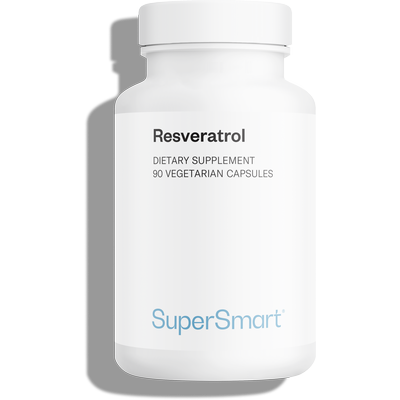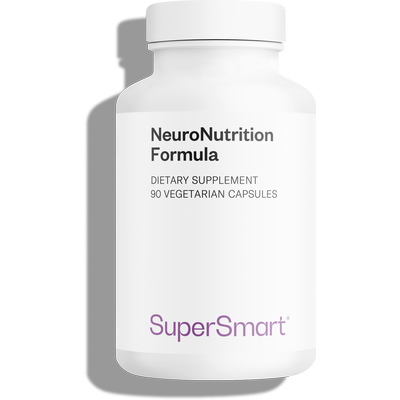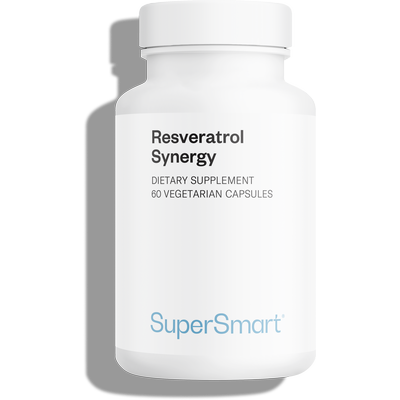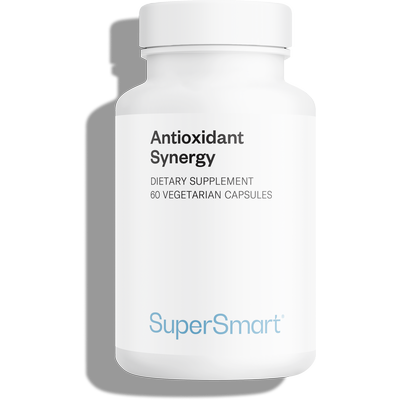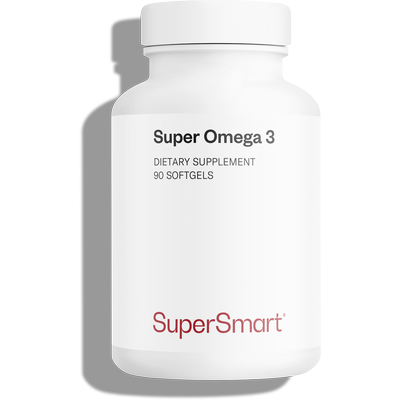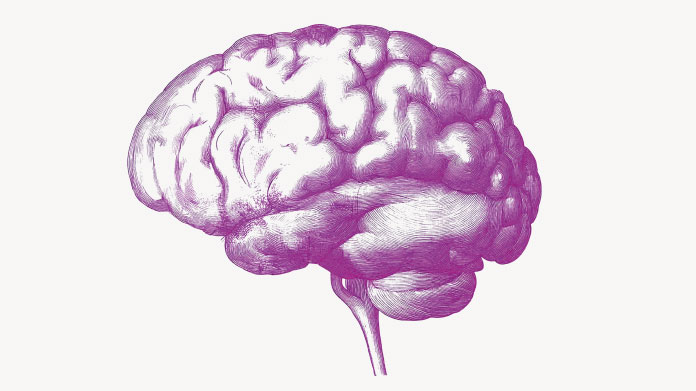Dementia: a vast study of 92,000 people points to diet
A large-scale study involving more than 92,000 adults from different ethnic backgrounds shows that a specific diet, the MIND diet, is associated with a significant reduction in the risk of neurodegenerative disorders.

A large-scale multi-ethnic study looks at the effect of diet on the brain
MIND diet: a likely lower risk of neurodegenerative disorders
In an attempt to define the effects of diet on the brain, a study was carried out in a major multi-ethnic cohort of more than 92,000 adults aged between 45 and 75 at the outset, over a period of 10 years (1-2). A cohort study consists of following a defined population over a given period, in this case made up of individuals of various ethnic origins.
From the outset, those who adhered most closely to the MIND diet (Mediterranean-DASH Intervention for Neurodegenerative Delay, which combines the Mediterranean diet and the DASH diet) showed a 9% reduced risk of neurodegenerative disorders.
What's more, those who improved their diet over time (in other words, those who started following the MIND diet after the study began or followed it even more seriously) saw their risk reduced by 25% compared with those whose adherence to the diet decreased during the course of the study.
Effects on brain function vary according to ethnic origin
In this clinical study, the positive effects of the MIND diet were more marked in participants of African-American and Latin-American origin, as well as in Caucasians.
Conversely, the benefits were less noticeable among Americans of Asian or Hawaiian origin.
Conclusions to be drawn from this cohort study
Once again, science is demonstrating that diet is an essential factor in preserving the body and brain function.
In this case, the ten-year follow-up of the participants also showed that it is never too late to take action to support brain health.
Even gradual dietary changes, implemented in mid- or late life, can have a significant impact on preventing neurodegenerative disorders and cognitive decline.
Principles and expected benefits of the MIND diet
The MIND diet combines, within a targeted approach, key elements of the Mediterranean diet and the DASH diet (dietary approach to stop hypertension) (3).
This diet has been specially designed to support brain health and prevent dementia-related disorders, by focusing on:
- eating specific foods rich in antioxidants, unsaturated fats, fibre and essential nutrients: green leafy vegetables, berries, nuts, wholegrain cereals, olive oil, etc.
- reducing foods high in saturated fats (red meat, fried foods), sweets and alcohol
The aim of this diet is to nourish the brain in a balanced way, by encouraging a nutritional environment that naturally and sustainably supports cerebral functions.
In particular, it helps to limit oxidative stress, the phenomenon responsible for chronic cell inflammation and premature cell ageing, which is often seen in people suffering from cognitive decline (4).
The most interesting nutrients in the MIND diet
The MIND diet is based in particular on key nutrients that may explain, in part, its effects on the cerebral and cognitive spheres.
Omega-3s: essential fatty acids for the brain
Comprising vegetable oils and seeds rich in unsaturated fats, the MIND diet offers numerous sources of omega-3 essential fatty acids such as DHA and EPA.
In particular, DHA helps maintain normal brain function. What's more, DHA and EPA contribute to the normal functioning of the heart and the maintenance of normal blood pressure, parameters that play a part in supplying the brain with blood and oxygen (5).
Finally, studies show that these two fatty acids play a role in the fluidity of neuronal membranes and help to reduce inflammation (6).
![]() Discover the Super Omega 3 food supplement, which provides a pure and stable supply of EPA and DHA omega-3s.
Discover the Super Omega 3 food supplement, which provides a pure and stable supply of EPA and DHA omega-3s.
Antioxidant substances found in plants
The MIND diet is packed with berries, fruit and vegetables rich in antioxidants, such as vitamins B2, C and E, zinc, selenium, etc.
Antioxidants are molecules with the ability to counter the effects of free radicals responsible for oxidative stress (7).
Oxidative stress is a factor in cellular deterioration that contributes to the premature ageing of brain structures (8).
Other molecules present in MIND diet foods are also being studied for their potential antioxidant effects, in particular flavonoids and polyphenols (9-10).
Among the most well-documented polyphenols in this field is resveratrol, often studied for its impact on cell ageing (11).
![]() Discover Antioxidant Synergy, which combines green tea, grape seeds, turmeric and the patented polyphenol-rich compound Vitaberry®.
Discover Antioxidant Synergy, which combines green tea, grape seeds, turmeric and the patented polyphenol-rich compound Vitaberry®.
![]() Discover the dietary supplement Resveratrol extracted from Vitis vinifera and Polygonum cuspidatum or the Resveratrol Synergy complex, which combines different types of polyphenols with transresveratrol, the most bioavailable active form of resveratrol.
Discover the dietary supplement Resveratrol extracted from Vitis vinifera and Polygonum cuspidatum or the Resveratrol Synergy complex, which combines different types of polyphenols with transresveratrol, the most bioavailable active form of resveratrol.
Other nutrients that can potentially support brain function
Various nutrients provided by foods in the MIND diet are being studied for their potential nutritional and cellular benefits.
These include amino acids and their precursors, phospholipids and various nutrients that may play a role as cofactors in various metabolic processes.
When carefully selected, these combined ingredients have the potential to help support brain function, including cellular energy, neuronal protection and the structure of cell membranes.
![]() Discover NeuroNutrition Formula food supplement, an exclusive formula combining 7 ingredients studied for their potential role in protecting the brain against the effects of ageing.
Discover NeuroNutrition Formula food supplement, an exclusive formula combining 7 ingredients studied for their potential role in protecting the brain against the effects of ageing.
SUPERSMART ADVICE
References
- Park SY, Setiawan VW, Crimmins EM, White LR, Haiman CA, Wilkens LR, Le Marchand L, Lim U. Dietary patterns and risk of Alzheimer's disease and related dementias across 5 racial and ethnic groups in the Multiethnic Cohort Study. Am J Clin Nutr. 2025 Jul 30:S0002-9165(25)00437-X. doi: 10.1016/j.ajcnut.2025.07.020. Epub ahead of print. PMID: 40744415.
- https://www.hawaii.edu/news/2025/06/24/mind-diet-study/
- Morris MC, Tangney CC, Wang Y, Sacks FM, Bennett DA, Aggarwal NT. MIND diet associated with reduced incidence of Alzheimer's disease. Alzheimers Dement. 2015 Sep;11(9):1007-14. doi: 10.1016/j.jalz.2014.11.009. Epub 2015 Feb 11. PMID: 25681666; PMCID: PMC4532650.
- van Zonneveld SM, van den Oever EJ, Haarman BCM, Grandjean EL, Nuninga JO, van de Rest O, Sommer IEC. An Anti-Inflammatory Diet and Its Potential Benefit for Individuals with Mental Disorders and Neurodegenerative Diseases-A Narrative Review. Nutrients. 2024 Aug 10;16(16):2646. doi: 10.3390/nu16162646. PMID: 39203783; PMCID: PMC11357610.
- Dighriri IM, Alsubaie AM, Hakami FM, Hamithi DM, Alshekh MM, Khobrani FA, Dalak FE, Hakami AA, Alsueaadi EH, Alsaawi LS, Alshammari SF, Alqahtani AS, Alawi IA, Aljuaid AA, Tawhari MQ. Effects of Omega-3 Polyunsaturated Fatty Acids on Brain Functions: A Systematic Review. Cureus. 2022 Oct 9;14(10):e30091. doi: 10.7759/cureus.30091. PMID: 36381743; PMCID: PMC9641984.
- Giacobbe J, Benoiton B, Zunszain P, Pariante CM, Borsini A. The Anti-Inflammatory Role of Omega-3 Polyunsaturated Fatty Acids Metabolites in Pre-Clinical Models of Psychiatric, Neurodegenerative, and Neurological Disorders. Front Psychiatry. 2020 Feb 28;11:122. doi: 10.3389/fpsyt.2020.00122. PMID: 32180741; PMCID: PMC7059745.
- Lee KH, Cha M, Lee BH. Neuroprotective Effect of Antioxidants in the Brain. Int J Mol Sci. 2020 Sep 28;21(19):7152. doi: 10.3390/ijms21197152. PMID: 32998277; PMCID: PMC7582347.
- Jelinek M, Jurajda M, Duris K. Oxidative Stress in the Brain: Basic Concepts and Treatment Strategies in Stroke. Antioxidants (Basel). 2021 Nov 25;10(12):1886. doi: 10.3390/antiox10121886. PMID: 34942989; PMCID: PMC8698986.
- Zahra M, Abrahamse H, George BP. Flavonoids: Antioxidant Powerhouses and Their Role in Nanomedicine. Antioxidants (Basel). 2024 Jul 29;13(8):922. doi: 10.3390/antiox13080922. PMID: 39199168; PMCID: PMC11351814.
- Singh A, Yau YF, Leung KS, El-Nezami H, Lee JC. Interaction of Polyphenols as Antioxidant and Anti-Inflammatory Compounds in Brain-Liver-Gut Axis. Antioxidants (Basel). 2020 Jul 26;9(8):669. doi: 10.3390/antiox9080669. PMID: 32722619; PMCID: PMC7465954.
- Kohandel Z, Darrudi M, Naseri K, Samini F, Aschner M, Pourbagher-Shahri AM, Samarghandian S. The Role of Resveratrol in Aging and Senescence: A Focus on Molecular Mechanisms. Curr Mol Med. 2024;24(7):867-875. doi: 10.2174/1566524023666230602162949. PMID: 37278035.
Keywords
1 Days
Trustworthy company with tested products
Trustworthy company with tested products
Trusted
6 Days
Efficiency and speed
Efficiency and speed
Cuccie
7 Days
GOOD BRAND IN FOOD COMPLEMENTS
GOOD BRAND IN FOOD COMPLEMENTS - SERIOUS WITH GOOD DOCUMENTS AND DETAILS SCIENTIST. AND SERIOUS HONNEST COMMERZIALISATION. I HAVE TRUST IN THEIR PRODUCTS.
FENOGLIO Guy
9 Days
Very good experience
Very good experience, the products arrived in time, in perfect condition and are good quality. Thank you.
GABI TIRCOCI
15 Days
very good expereince
very good expereince
Jelena Đaković
15 Days
Very good products.
Very good products.
Agnes BENDSAK
17 Days
Just OK
Just OK, ordering from company for many years and being safisfied
Lynn Mae
17 Days
Recomendo
Produtos encomendados são recebidos atempadamente e de acordo com o anunciado! Muito satisfeita!
Carla Sofia
18 Days
Everything is great!
Everything is great!
Jonas
23 Days
The delivery was fast and the product…
The delivery was fast and the product is great
SOMMARIVA Gianni
24 Days
Great service and lots of information
Great service and lots of information
Gabi
27 Days
Service Satisfaction
I’m satisfied with the service; it fulfilled what it set out to do.
Anfhony Abreu
30 Days
Original product and fast delivery
Original product and fast delivery. I haven't started it yet, but will do soon.
Vincenza Catania
32 Days
Good quality
Good quality. Good service.
Leonel Guzman
34 Days
Top!!!!!!!!
Top!!!!!!!!
Michael
of experience
your money back
##montant## purchase


